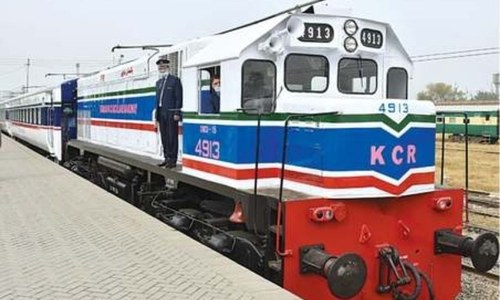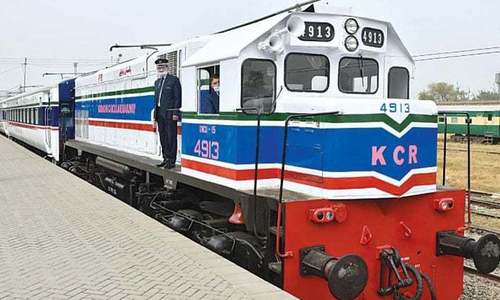ISLAMABAD: The government on Tuesday approved the transaction structure and project proposal for the construction and operation of Karachi Circular Railway (KCR) on public-private mode at an estimated cost of about Rs220bn.
Under the transaction structure approved by the board of Public-Private Partnership Authority (P3A), the private sector will finance, develop and run the project on commercial lines. The meeting of the P3A board was presided over by Planning and Development Minister Asad Umar.
The sources said the transaction structure proposed by the consultants/transaction advisers envisaged about Rs533bn government subsidy over the 33-year project life for electricity and major operation and maintenance (O&M) costs which was rejected by the board. The project cost was initially estimated at about Rs201bn excluding Rs20.7bn worth of loop section to avoid 22 crossings already under implementation.
It was decided that a revised umbrella PC-1 be submitted to the Central Development Working Party (CDWP) with firmed-up cost estimates. The board also decided that based on revised cost estimates, the federal government would finance 40pc that would work out at about Rs80-90bn and provide this financing to the concessionaire at the outset (first three years) to help operationalise the project.
Project to be financed and run by private sector
On the issue of 40pc (Rs80-90bn) government cost-sharing, the P3A board decided that the railway board would be asked to lease out for 99 years 13 properties en route the KCR project to meet the initial financing since the profit would ultimately flow to Pakistan Railways (PR).
Alternatively, in case of PR board’s disagreement, the federal government would provide the funding out of Public Sector Development Programme (PSDP) but then the return on that funding would be directed to the federal government instead of PR.
The concessionaire would be responsible for the operations for the next 30 years. The board also decided to provide a Minimum Revenue Guarantee (MRG) to the concessionaire as comfort for lower than targeted ridership ratio. Under this MRG comfort, the concessionaire would absorb 15pc lower consumer traffic (ridership) than targeted. In case of a larger gap, the shortage beyond 15pc between estimated and actual consumer traffic would be shared on 50:50 basis by the government and the contractor.
The consultants had suggested risk-sharing ie lower traffic than estimated should be on 80:20 ratio between the government and the contractor but this was rejected by P3A board. The windfall benefit in case of higher than estimated ridership would also be on similar lines. The contractor would absorb the benefit up to 15pc higher ridership and share on a 50:50 basis with the government the benefit of more than 15pc higher than targeted travellers.
The board reviewed the key statistics and components of the project proposal of KCR which envisaged the project to be built on a public-private partnership basis. This means the private sector would be responsible to finance the construction of the civil works, electrical & mechanical (E&M) component including procurement of rolling stock and operations & maintenance (O&M) of the project from its own resources under a single package contract.
“The economic benefits of the project are phenomenal in terms of saving vehicle operating costs, environmental protection, accidents & time savings, contribution towards promoting gender equality, and spill-over tax impact”, a statement said.
Mr Asad while highlighting the importance of the project said that it was an important part of the Karachi Transformation Plan (KTP) and will play a pivotal role in providing an affordable and reliable public transport system to the Karachiites.
He said that with the approval of the KCR project by the P3A board, the project appraisal process for the Karachi-Pipri Freight Corridor Project should also be completed at the earliest as that project was also critical in terms of easing congestion at the Karachi port.
The project with its transaction structure approved by the P3A board would now be taken to the market after formal ratification of the transaction structure by the Executive Committee of the National Economic Council.
Published in Dawn, January 26th, 2022














































